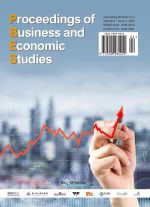Abstract
In the era of Big Data, the attention economy has emerged as a core logic of capital accumulation, yet behavioral economic explanations fail to penetrate the unconscious drives and desire structures underlying attention investment. This paper adopts Lacan’s topological framework of the three orders (the Real, the Symbolic, and the Imaginary) to conduct a psychoanalytic dissection of the attention economy. It argues that Big Data-driven attention mechanisms essentially manipulate desire across these three orders: algorithms, functioning as the “digital big Other,” exploit the Real’s traumatic surplus and the deferred structure of desire through infinite scroll and traumatic stimuli; regulate identity production in the Symbolic via visibility laws, social currency, and datafication; and construct narcissistic illusions in the Imaginary through filters, filter bubbles, and illusions of hyperconnection. Ultimately, the paper proposes an ethics of lucid attention, calling for critical algorithmic literacy, confrontation with the Real’s lack, dismantling of Imaginary illusions, and reclaiming sovereignty over attention—essential for preserving subjective dignity and human freedom in the digital age.
References
Bucher T, 2018, If... Then: Algorithmic Power and Politics. Oxford University Press, UK.
Cheney-Lippold J, 2017, We Are Data: Algorithms and the Making of Our Digital Selves. NYU Press, New York.
Citton Y, 2017, The Ecology of Attention. Polity Press, UK.
Crary J, 2013, 24/7: Late Capitalism and the Ends of Sleep. Verso Books, New York.
Davenport TH, Beck JC, 2001, The Attention Economy: Understanding the New Currency of Business. Harvard Business Press, Massachusetts.
Fuchs C, 2014, Digital Labour and Karl Marx. Routledge, UK.
Gerlitz C, Helmond A, 2013, The Like Economy: Social Buttons and the Data-Intensive Web. New Media & Society, 15(8): 1348–1365.
Han BC, 2015, The Burnout Society. Stanford University Press, California.
Hogan B, 2010, The Presentation of Self in the Age of Social Media: Distinguishing Performances and Exhibitions Online. Bulletin of Science, Technology & Society, 30(6): 377–386.
Kahneman D, 2011, Thinking, Fast and Slow. Farrar, Straus and Giroux, New York.
Lacan J, 1949, The Mirror Stage as Formative of the I Function as Revealed in Psychoanalytic Experience. In Écrits, 1949: 75–81.
Lacan J, 1957, The Agency of the Letter in the Unconscious or Reason Since Freud. In Écrits, 1957: 146–178.
Lacan J, 1966, Écrits: The First Complete Edition in English. W. W. Norton & Company, New York.
Pariser E, 2011, The Filter Bubble: What the Internet is Hiding from You. Penguin UK, UK.
Schüll ND, 2012, Addiction by Design: Machine Gambling in Las Vegas. Princeton University Press, New Jersey.
Stiegler B, 2010, For a New Critique of Political Economy. Polity, UK.
Thaler RH, Sunstein CR, 2008, Nudge: Improving Decisions About Health, Wealth, and Happiness. Yale University Press, Connecticut.
